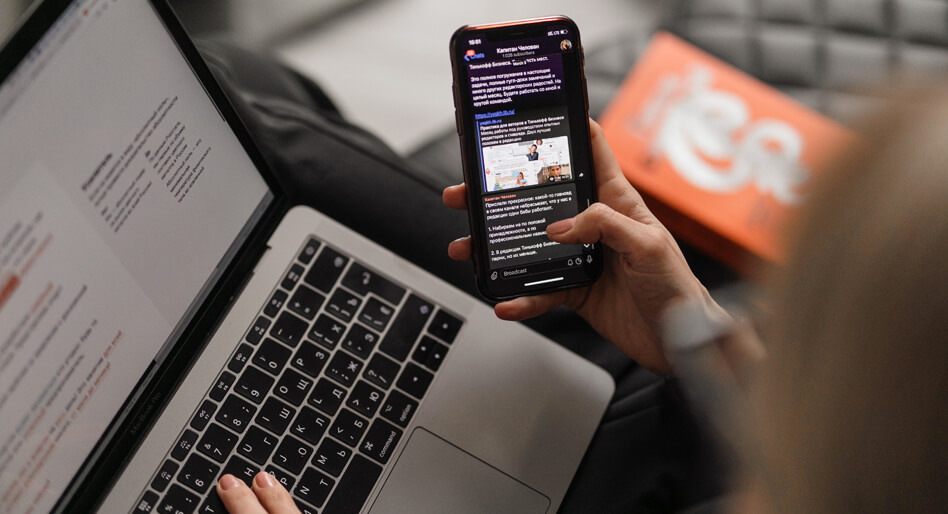In the 21st century, mobile communication has become an integral part of our daily lives – be it for play or work. As the world prepares to deploy 5G technology as a global communication standard, there are still data privacy and security concerns that are waiting to be addressed. A PGP SIM Card can help individuals and organizations to protect valuable information that transverses through digital communication channels.
From a data privacy and security perspective, the standard mobile communication techniques that most people use for transmitting information are highly vulnerable to attack tactics and techniques. For instance, without the deployment of an extra layer of protection, wireless communication via a standard SIM card is vulnerable to various threats, including Denial-of-Service (DoS), Piggybacking and replay attacks, MITM (Man-In-The-Middle) attacks, etc. Without the use of an encryption mechanism, malicious actors are capable of employing tactics, techniques, and procedures to intercept sensitive communications. However, PGP SIM Cards are the answer to assuring the confidentiality and integrity of mobile communication in this Information age.
PGP SIM Cards – An Overview of The Technology
Traditionally speaking, a SIM (Subscriber Identification Module) is a physical mechanism designed to securely store International Mobile Subscriber Identity (IMSI) numbers, which are used in the authentication and identification of users on a mobile communication device. Meanwhile, PGP (Pretty Good Privacy) is an encryption protocol, which offers cryptographic authentication and user privacy for mobile communication.
Therefore, PGP SIM Cards use PGP encryption techniques to encrypt and decrypt calls, emails, and device files, with the goal of increasing confidentiality and integrity of communication over mobile hardware devices. The PGP technique employs a mixture of public-key cryptography, hashing, data compression, as well as asymmetric and symmetric keys to scramble data in motion across mobile networks. Hence, PGP SIM Cards combine the best features of public and private key cryptography to provide ample communication security and privacy.
Benefits of PGP SIM Cards
● Secure Calling and Data Files
PGP encryption helps in protecting the user’s privacy and security. All calls and data files originating from a PGP SIM Card-enabled device get encrypted and decrypted using dynamic algorithms helping users protect the confidentiality of information.
● Restricts Geo-Location Sharing
Due to the built-in privacy controls in a PGP SIM Card, location sharing with network providers is restricted. In a regular SIM structure, the mobile communication signal attaches itself to the nearest network tower and allows a user to make calls. Alternatively, a PGP SIM Card does not merely connect to the nearest network tower, but passes the call through multiple re-routing channels and virtual switchboards. Thus, a user’s location is not compromised.
● Identity Masking
Identity masking uses a complicated virtual switchboard technique to allow users to mask their name or phone number when making a call. Though it is a complicated process, it allows users to conceal their identities by removing the number or changing to a completely random number, while making a call.
Business Implementations of PGP SIM Cards
With the growing awareness about data privacy and security, individual users and organizations are switching to PGP SIM cards and leveraging PGP encryption technology to protect sensitive communication over wireless networks. Although the anatomy of the PGP SIM Card might appear complex to the average person, the following are its business implementations:
- Deployment within law enforcement agencies to maximize the security and privacy of emergency services and public safety investigations.
- PGP encryption protocols are being implemented to facilitate digital communication within critical industries, such as Financial Services, Healthcare, National Defense, etc.
- PGP SIM cards are compatible with most mobile phones. Thus they can be seamlessly integrated into the enterprise security solution of major organizations.
- Scalable privacy and security solutions with features such as unlimited encrypted emails, international provisioning, (actual) end-to-end encryption, etc.
Conclusion
While mobile communication and its access are fast becoming our first and only source of information, the number of mobile security threats is also growing. Addressing these threats can, at times, become frustrating for organizations and individuals alike. It is infeasible to break PGP encryption by either computational or cryptographic means for cyber adversaries. Thus, those who wish to enhance the security of their mobile communication and are concerned about the protection of their personal data must opt for PGP encrypted SIM cards.

